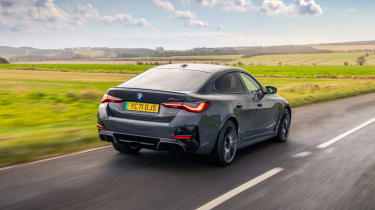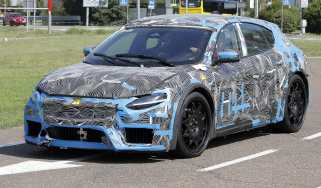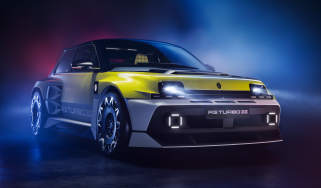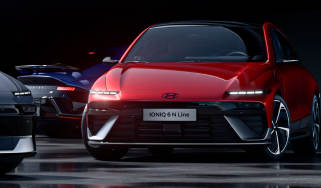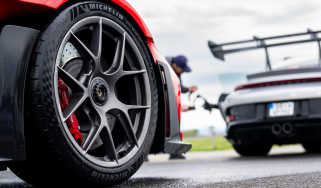UK ban of new petrol and diesel engined cars from 2035 – manufacturers react
Car manufacturers speak out about problems with the UK's 2035 ban on the sale of new car petrol and diesel cars
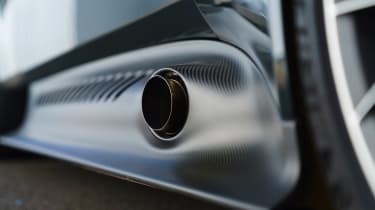
In 2020 the UK's then Prime Minister Boris Johnson confirmed his Government's commitment to the ban of new petrol and diesel cars, announcing a ban from selling new cars powered by internal combustion engines from 2030, with a caveat of plug-in hybrid cars with a ‘significant zero emission capability’ able to be sold until 2035. This realigned target date was ten years earlier than was originally revealed in 2018, and came as part of a wide reaching 10 point plan for a green industrial revolution designed to create 250,000 jobs backed by a £12 billion investment package.
This decision pushed forward its plan to reduce the UK’s contribution to climate change following significant global pressure to decarbonise, with this renewed urgency coming on the back of alarming climate change projections. However, current Prime Minister Rushi Sunak has confirmed that the ban on the sale on new petrol and diesel engined cars will be delayed until 2035.
> Synthetic fuels explained: is there such a thing as carbon neutral petrol?
The original announcement coincided with a £4bn investment in the UK’s charging infrastructure and battery production to support the increase in electric vehicle sales, along with more than £500 million made available to incentivise people to switch to electric and hydrogen powered vehicles. This latest announcement comes just weeks after the Government £500 million of subsidies to JLR for its new £4bn 'gigafactory' to be built in Somerset.
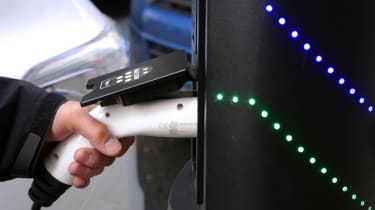
The original statement released by the Government in 2020 said: 'Following extensive consultation with car manufacturers and sellers, the Prime Minister has confirmed that the UK will end the sale of new petrol and diesel cars and vans by 2030, ten years earlier than planned. However we will allow the sale of hybrid cars that can drive a significant distance without emitting carbon until 2035.'
To support the original plans the Prime Minister confirmed a number of measures, including:
- £1.3 billion to accelerate the rollout of charge points for electric vehicles in homes, streets and on motorways across England, so people can more easily and conveniently charge their cars.
- £582 million in grants for those buying zero or ultra-low emission vehicles to make them cheaper to buy and incentivise more people to make the transition.
- Nearly £500 million to be spent in the next four years for the development and mass-scale production of electric vehicle batteries, as part of our commitment to provide up to £1 billion, boosting international investment into manufacturing bases including in the Midlands and North East.
What happens to existing ICE cars?
While the date banning the sale of new petrol and diesel engined cars has moved the same questions remain. Owners will still be able to use ICE cars, with currently no timeline or strategy in place to remove cars sold before the deadline from UK roads.
The government’s 2020 announcement didn't, however, take into consideration the research and development that was and continued to be undertaken by a number of manufacturers into synthetic fuels, which are looking to provide a lifeline to some ICE vehicles, especially performance and classic cars, and those competing in motorsport.
Even as early as 2022 some OEMs were starting to push back at the holes in the UK and Europe’s policies, not arguing the case for reducing emissions, rather highlighting the fact that most cars on the road in 2030 will still use internal combustion engines.
In 2022 Oliver Zipse, chairman of the board of management at BMW, has urged Europe and the United Kingdom not to ‘put a policy in place that ends the combustion engine’. He went on to urge the UK government to review its strategy for the sale of combustion engines from 2030. Unlike many of its competitors, BMW has not announced a date when it will build its last internal combustion engine, or when it will sell its last car powered by one.
His reasoning at the time and today is that electrification is not the solution for all, that hydrogen and e-fuels both need to be considered as alternatives to fossil fuels and that electrification doesn’t provide a solution for the 280 million cars that are currently on the road. ‘If you want to do something for climate change, allow e-fuels. It’s the only strategy to address the existing fleet, which is a much bigger problem than new car sales. Hydrogen is the only possibility [for some] to drive emission-free.’
What legislation is coming up in the meantime?
These changes announced by the UK Government are in line with other European countries that have announced deadlines to ban the sale of new petrol and diesel engined cars, with both Germany and Italy successfully negotiating with the European Union to extended the life new ICE powered vehicles to 2035. However, there are ever stricter emissions regulations on the horizon being imposed via Euro 7 regulations that could result in newly developed engines having a very limited shelf life considering the investment required by manufacturers to meet them.
Both Luca de Meo and Carlos Tavares, CEOs of Renault and Stellantis respectively, have called for a rethink on the forthcoming Euro 7 emissions legislation for petrol and diesel vehicles, arguing that the investment required to meet the proposed levels would cost billions and have a marginal impact on reducing greenhouse gases. ‘Why are we diverting scarce resources to regulations that are only going to last a few years?’ asked Tavares.
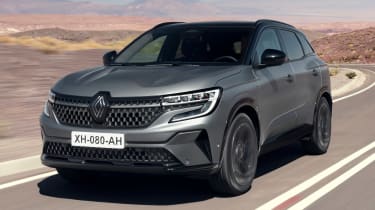
Renault and Stellantis’s arguments hinge around their pure electric strategies, with these plans held back if there is a requirement to invest (up to 1 billion euros) in what they clearly consider to be old technology.
For the likes of Ford, who has committed to a life of EVs inline with the original proposed ban, the delay to the ban has resulted in a strong statement of dissaproval from Ford UK Chair, Lisa Brankin. 'Three years ago the government announced the UK's transition to electric new car and van sales from 2030. The auto industry is investing to meet that challenge.
'Ford has announced a global $50 billion commitment to electrification, launching nine electric vehicles by 2025. The range is supported by £430 million invested in Ford's UK development and manufacturing facilities... Our business needs three things from the UK government: ambition, commitment and consistency. A relaxation of 2030 would undermine all three.'
Toyota, however, welcomed the announcement to push back the 2030 deadline on the sale of new petrol and diesel engined cars. In a statement it said: 'Toyota has consistently adopted a multi path technology approach to reduce emissions as much as possible as soon as possible. We have spent billions developing and bringing to market hybrid electric, plug-in hybrid electric, battery electric and hydrogen fuel cell electric powertrains to support the transition to greater zero emissions transport.
> Best electric cars 2024 – the standout EVs on sale right now
'Today's Government announcement is welcome as it provides the clarity industry has been asking and recognises that all low emission and affordable technologies can have a role to play in a pragmatic vehicle transition.
'Toyota fully shares the Prime Minister's key goal of zero carbon, and is committed to achieving the Government's target of zero emissions vehicles from 2035 in the UK.' Toyota has announced it will start manufacturing a new range of battery electric vehicles in a factory from 2026.
The elephant in the room around reducing the car industry’s greenhouse gas emissions has always been what to do about existing cars and those where an EV simply isn’t a viable option. While some have been prepared to be part of this conversation, only now are those who need to be heard beginning to speak up.
And while there is no denying that the reliance on ICE vehicles needs addressing, the blanket ban on ICE car sales isn’t quite the nuanced and considered solution for the wider challenge of decarbonising personal and commercial mobility.
More on sustainable fuels, eFuels and synthetic fuels below:
- Porsche eFuels development
- Synthetic fuel v regular unleaded: sustainable petrol put to the test
- efuels, sustainability and sports cars – is it the key to saving the combustion engine?

